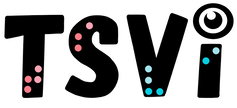- Home
-
Learn
- History of VI >
- Legislation & Laws >
- Vision Professionals >
-
VI Program Resources
>
- Program Printables
- Itinerant Teaching Tips
- Year at a Glance
- VI Program Handbook
- Caseload Analysis
- Organization & Time Management
- Professional Development
- Teacher Standards
- Professional Ethics
- Awards & Recognition
- APH Scholar Program
- Professional Organizations
- Certification Organizations
- Dealing with Challenges
- Professional Publications >
- Relatable Books for All Ages >
- Family Resources >
- Plan
- Basics
-
Teach
- Teaching Strategies >
-
Compensatory Skills Instruction
>
-
Social Skills
>
-
Self Determination
>
- Body Image & Acceptance
- Making Personal Goals
- My Vision Presentation
- My Self-Description
- Create a Personal Data Sheet
- Disclosure Decision
- Disability Statement
- Requesting Help
- Fighting Fears
- My Circle of Support
- Personal Responsibility
- Advocate for Safe Enviroments
- Having Picture Taken
- Coping with Change
- Aging Eyes
- Physical Characteristics
- Political Activism
- Laws Regarding Persons with Disabilities
-
Sensory Efficiency
>
-
Independent Living
>
- Orientation & Mobility Instruction >
- Recreation & Leisure >
-
Career & Vocation
>
-
Grow
- Complete Set Bonus >
-
Recorded Presentations
>
- Webinar: Tips for Being a "Physically Fit" TVI
- Webinar: The Art of Teaching the ECC
- Webinar: Virtual & F2F Strategies
- Webinar: Foundations of Teaching the ECC in the Age of Virtual Instruction
- Webinar: Itinerant Teaching Strategies
- Webinar: Using Themes to Teach the ECC
- Webinar: Conducting a FVLMA
- Webinar: Selecting the Right AT
- Webinar: Developing SMARTER Goals
- Webinar: Determining Service Intensity Using the VISSIT
- Webinar: Activities to Teach the ECC
- Webinar: Accessible Content for BLVI
- Webinar: Accommodations for VI
- Webinar: MIMO Strategies & Activities
- Webinar: SIDPID Strategies & Activities
- Webinar: Standard Course of Study Strategies & Activities
- Webinar: Job Tasks for Job, Career & Life
- Shop
- Jobs
Dealing with Challengesby Carmen Willings
June 12, 2022 teachingvisuallyimpaired.com When dealing with challenges in work and in your professional life, Be Flexible, Plan Ahead, and Stay Calm. We all are going to have stressful times. Whether it’s a challenging team, a student that you are having a hard time connecting with, an overwhelming caseload or any other of a number of stresses. Try to be flexible, plan ahead and stay calm.
Working in IsolationIt can be challenging to work in isolation. We are often times “singletons” or the only vision professional in the area. For this reason, it’s important to become the expert in your area. Seek opportunities for professional growth, build your resource library, join listservs or social networking sites and forums, and network with vision professionals at conferences. Maintain relationships beyond the conference, building your network and support system. Even if you work within a team, you may not meet regularly and feel isolated. Find a team of TVI’s that you can feel comfortable asking questions to and getting support.
Due Process & Litigation.Going through due process and litigation isn’t fun for anyone. You may not have done anything in question, but when a due process case begins, the entire team is involved and all records are reviewed. In light of that, always ensure that you maintain high professional ethics and maintain your data collection. Know that everyone makes mistakes, but when you do make them, try to learn from your mistakes and the mistakes of others. Always be professional in your interactions and with all communication and follow best practice and stay current. Make sure your data and assessments are accurate and thorough.
AT TroubleshootingTroubleshooting assistive technology is another challenge vision professionals face. It’s helpful to create a resource list of vendors in your area. As you attend conferences be sure to stop by and see the newest technology and see it demonstrated. Even if you don’t have a student on your current caseload that needs it, you never know when a student may end of needing it or a new student may be added to your caseload. If you aren’t able to physically attend conferences, see if vendors can come to you and demonstrate products. Develop relationships with the vendors as some may be able to provide support and may be able to provide technology on loan or to trial.
Dysfunctional & Toxic TeamsSome teams can be dysfunctional and toxic. You can’t always avoid these situations, but you can choose to be the model of professionalism. You can do this by focusing on your job, being careful with all communication, and maintaining high professional ethics. Whenever possible, keep your distance from toxic people. If your programs vision team is toxic, focus on ways you can grow professionally outside of the team or program. Don’t let the negativity keep you from excelling in your own career. Who knows, maybe your positive example will set an example to others!
We don’t grow when things are easy, we grow when we face challenges. |
History of Visual Impairments
Professional Practice
Vision Professionals
Professionalism
Teacher Resources
Professional Publications
VI Book Resources
|
|
Teaching Students with Visual Impairments LLC
All Rights Reserved |
- Home
-
Learn
- History of VI >
- Legislation & Laws >
- Vision Professionals >
-
VI Program Resources
>
- Program Printables
- Itinerant Teaching Tips
- Year at a Glance
- VI Program Handbook
- Caseload Analysis
- Organization & Time Management
- Professional Development
- Teacher Standards
- Professional Ethics
- Awards & Recognition
- APH Scholar Program
- Professional Organizations
- Certification Organizations
- Dealing with Challenges
- Professional Publications >
- Relatable Books for All Ages >
- Family Resources >
- Plan
- Basics
-
Teach
- Teaching Strategies >
-
Compensatory Skills Instruction
>
-
Social Skills
>
-
Self Determination
>
- Body Image & Acceptance
- Making Personal Goals
- My Vision Presentation
- My Self-Description
- Create a Personal Data Sheet
- Disclosure Decision
- Disability Statement
- Requesting Help
- Fighting Fears
- My Circle of Support
- Personal Responsibility
- Advocate for Safe Enviroments
- Having Picture Taken
- Coping with Change
- Aging Eyes
- Physical Characteristics
- Political Activism
- Laws Regarding Persons with Disabilities
-
Sensory Efficiency
>
-
Independent Living
>
- Orientation & Mobility Instruction >
- Recreation & Leisure >
-
Career & Vocation
>
-
Grow
- Complete Set Bonus >
-
Recorded Presentations
>
- Webinar: Tips for Being a "Physically Fit" TVI
- Webinar: The Art of Teaching the ECC
- Webinar: Virtual & F2F Strategies
- Webinar: Foundations of Teaching the ECC in the Age of Virtual Instruction
- Webinar: Itinerant Teaching Strategies
- Webinar: Using Themes to Teach the ECC
- Webinar: Conducting a FVLMA
- Webinar: Selecting the Right AT
- Webinar: Developing SMARTER Goals
- Webinar: Determining Service Intensity Using the VISSIT
- Webinar: Activities to Teach the ECC
- Webinar: Accessible Content for BLVI
- Webinar: Accommodations for VI
- Webinar: MIMO Strategies & Activities
- Webinar: SIDPID Strategies & Activities
- Webinar: Standard Course of Study Strategies & Activities
- Webinar: Job Tasks for Job, Career & Life
- Shop
- Jobs

